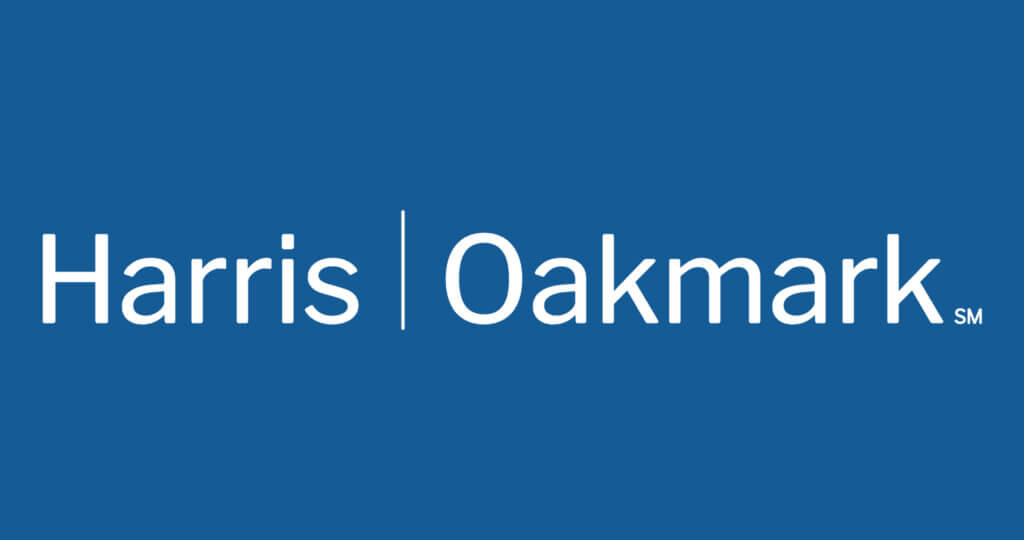Oakmark International Small Cap Fund - Investor Class
Average Annual Total Returns 03/31/11
Since Inception 11/01/95 11.37%
10-year 13.19%
5-year 4.51%
1-year 17.73%
3-month 2.09%
Gross Expense Ratio as of 09/30/10 was 1.38%
Past Performance is no guarantee of future results. The performance data quoted represents past performance. Current performance may be lower or higher than the performance data quoted. The investment return and principal value vary so that an investor’s shares when redeemed may be worth more or less than the original cost. The performance of the Funds does not reflect the 2% redemption fee imposed on shares redeemed within 90 days of purchase. To obtain the most recent month-end performance data, view it here.
The Oakmark International Small Cap Fund returned 2% for the quarter ended March 31, 2011, compared to the MSCI World ex U.S. Small Cap Index, which returned 3%. For the past 10 years, the Fund has earned an annualized rate of return of 13%, compared to the MSCI World ex U.S. Small Cap Index, which has returned 11% for the same period.
The top-performing stock in the Fund this quarter was Italian jeweler and luxury goods retailer Bulgari. On March 7, French luxury group LVMH announced its intention to acquire Bulgari. After securing the Bulgari-Trapani family’s 50.4% stake, LVMH made an offer for the remaining shares at 12.25 euros per share, a premium of approximately 61% to the pre-offer closing share price of 7.6 euros on March 4 and slightly above our estimate of intrinsic value. The takeover will allow LVMH to double the size of its watches and jewelry unit. Bulgari’s current CEO, Francesco Trapani, will remain in a leadership role with LVMH, and Trapani family members no longer active in the company will exit the business. The acquisition announcement provided us with an opportunity to sell our Bulgari shares and redeploy the proceeds into other holdings. We also sold our holdings in Rexel and Beter Bed.
The largest detractor to performance this quarter was Primary Health Care, an Australian operator of medical centers, pathology labs and diagnostic-imaging sites whose clinics conduct more than six million appointments per year. In February, Primary Health released lackluster first-half financial results. Revenues across the firm were flat and only slightly exceeded those of the same period last year. The pathology unit (the firm’s largest source of sales) suffered due to recently imposed Medicare rebate cuts, and margins were hurt by deregulation of pathology collection centers. However, because the firm gained market share, volumes were up almost 5%. Management is optimistic about pathology volumes and patient trends, and expects better results in the second half of the year. Additionally, Primary Health opened one new medical center, bringing its total to 54, and the company expects to open two more centers by the end of the fiscal year. Although the pathology unit is struggling, the diagnostic-imaging unit’s restructuring continues, and management believes the company’s margins and returns will improve by slowing the medical-center expansion and focusing on filling excess capacity. The market is concerned about additional changes to pathology reimbursement, but we believe the stock is significantly undervalued and thus attractive even after accounting for potential changes. However, we have adjusted our sell target downward to reflect the market’s difficulties and the company’s disappointing earnings result.
We added two securities to the Fund this quarter, both previous Fund holdings – Kimberly Clark de Mexico, the manufacturer of diapers and bathroom tissues; and Britvic, the U.K. soft drinks and juices bottler.
Kimberly Clark’s stock price decreased following a disappointing 2010 earnings report. The primary issues for the company have been raw-material inflation, slowing volume growth in a difficult consumer environment in Mexico, and competitors that were slow to follow Kimberly Clark’s price increases in diapers and tissue. While we continue to carefully monitor these issues, our research indicates that these concerns appear to be shorter-term in nature. Management, in our opinion, has proven to be excellent operators and extremely good allocators of capital: Historically, it has returned over 100% of free-cash flow to shareholders via dividends and buybacks. Kimberly Clark is the dominant provider of consumer-based paper products in Mexico, and its price dip provided us with the opportunity to purchase shares in the company.
Britvic’s share price suffered after the company indicated that fiscal year 2011 results would be worse than expected due to higher raw-material costs. Again, we believe the market has overemphasized short-term earnings and ignored Britvic’s tremendously strong franchise. In addition, the company is innovative, its sales volumes remain healthy and management has indicated it will cut costs further. For these reasons, we reinitiated a position in the company.
Because we believe the U.S. dollar remains weak relative to other currencies held in the Fund, we continue to hedge some of the Fund’s currency exposure. At the recent quarter-end, approximately 52% of the Fund’s Swiss franc, 54% of the Australian dollar and 51% of the Japanese yen exposures were hedged. We added a new hedge to our Swedish holdings and ended the quarter with 26% of Swedish kronor exposure hedged.
We thank you for your continued confidence and support.
As of 3/31/11, Bulgari SpA represented 0% of The Oakmark International Small Cap Fund’s total net assets, LVMH Moet Hennessy Louis Vuitton SA 0%, Rexel SA 0%, Beter Bed Holding NV 0%, Primary Health Care, Ltd. 3.0%, Kimberly-Clark de Mexico S.A. de C.V. 0.2%, and Britvic PLC 0.8%. Portfolio holdings are subject to change without notice and are not intended as recommendations of individual stocks.
The MSCI World ex U.S. Small Cap Index (Net) is a free float-adjusted market capitalization index that is designed to measure global developed market equity performance, excluding the U.S. The MSCI Small Cap Indices target 40% of the eligible Small Cap universe within each industry group, within each country. MSCI defines the Small Cap universe as all listed securities that have a market capitalization in the range of USD200-1,500 million. This benchmark calculates reinvested dividends net of withholding taxes using Luxembourg tax rates. This index is unmanaged and investors cannot invest directly in this index.
The stocks of smaller companies often involve more risk than the stocks of larger companies. Stocks of small companies tend to be more volatile and have a smaller public market than stocks of larger companies. Small companies may have a shorter history of operations than larger companies, may not have as great an ability to raise additional capital and may have a less diversified product line, making them more susceptible to market pressure.
Investing in foreign securities presents risks that in some ways may be greater than U.S. investments. Those risks include: currency fluctuation; different regulation, accounting standards, trading practices and levels of available information; generally higher transaction costs; and political risks.The discussion of the Funds’ investments and investment strategy (including current investment themes, the portfolio managers’ research and investment process, and portfolio characteristics) represents the Funds’ investments and the views of the portfolio managers and Harris Associates L.P., the Funds’ investment adviser, at the time of this letter, and are subject to change without notice.







